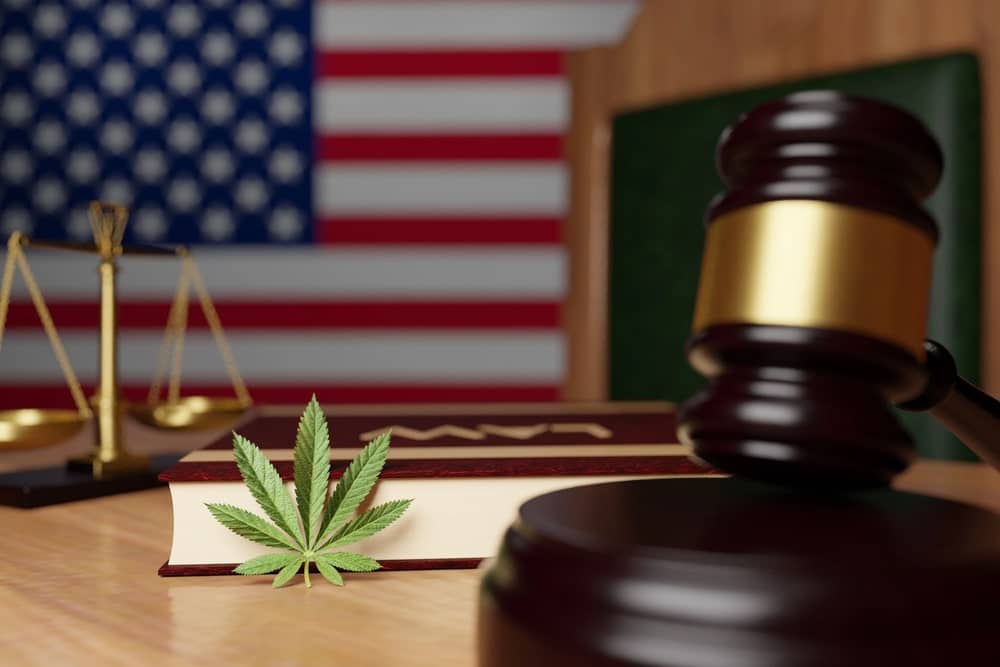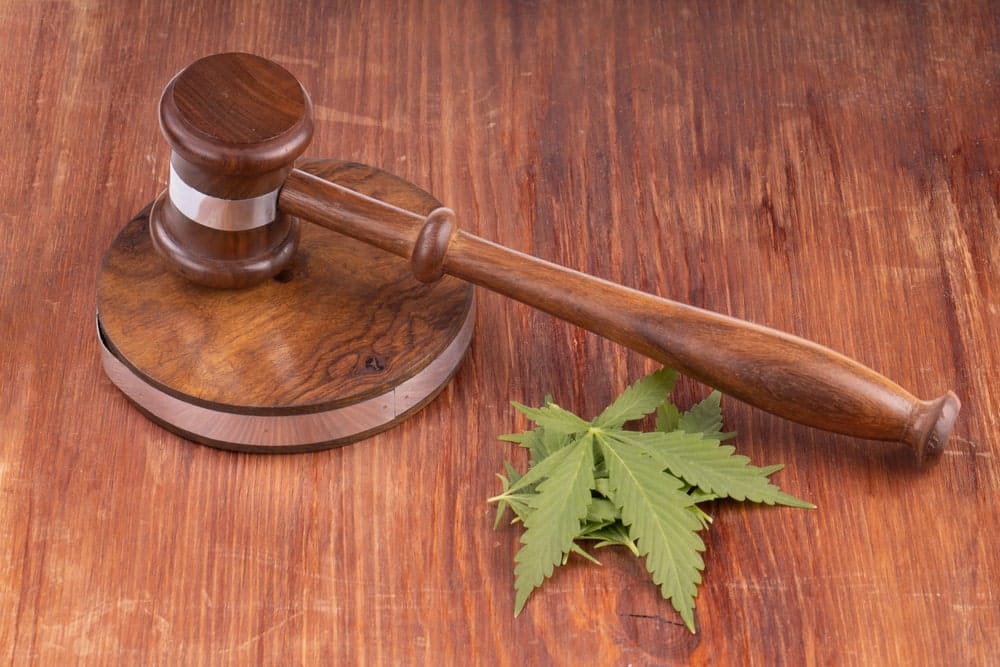Imagine being arrested and suddenly facing marijuana possession penalties in Florida. The stress of the arrest, the uncertainty of the legal process, and the fear of long-term consequences can feel overwhelming. Taking the right steps quickly is essential to protect your rights and your future.
Penalties for marijuana possession vary depending on the amount, the circumstances of the case, and any prior record. Even a minor charge can create a criminal record, affect employment, and limit future opportunities. Understanding how the law applies helps you see what is truly at stake.
This guide explains Florida drug laws, penalties for different amounts, misdemeanor versus felony charges, defenses, and expungement. You will also see how an experienced Ponte Vedra drug crimes lawyer can guide you through each step.
Florida’s Marijuana Possession Laws
Marijuana possession under Florida Statutes § 893.13 refers to knowingly holding or controlling cannabis without legal authorization. Constructive possession in Florida also applies when drugs are found in shared spaces but linked to a person’s control. The law makes no exception for casual use or experimentation, regardless of circumstances.
Florida distinguishes between personal use and possession with intent to distribute. Prosecutors look at the amount, packaging, and surrounding evidence to make this determination. The intent to distribute often carries much harsher consequences than charges for personal use.
Recreational marijuana remains illegal in Florida despite legalization trends in other states. Only limited medical use is permitted, and certification is strictly regulated. Possession of a controlled substance charges in Florida still apply if marijuana is held without authorization, regardless of national debates.

Penalties for Possession by Amount
Florida’s drug laws impose strict consequences depending on how much marijuana is involved. Charges vary between misdemeanors and felonies. These penalties can also create permanent records that follow individuals long after the case ends.
Possession of 20 Grams or Less
- Classified as a first-degree misdemeanor
- Up to one year in jail
- $1,000 fine
- Probation
- Substance abuse education
- Even a small charge can harm employment opportunities and create a permanent record
Possession of More Than 20 Grams
- Classified as a third-degree felony
- Up to five years in prison
- $5,000 fine
- Probation
- Felony charges also impact civil rights, including voting and firearm ownership.
Possession of Hash, Concentrates, or Edibles
- Punished more harshly than marijuana plant material
- Even small quantities may lead to felony charges
- Courts treat these cases with greater severity
Aggravating Factors That Increase Penalties
Certain circumstances make marijuana possession charges far more serious. Florida courts apply harsher penalties when aggravating factors are present. These conditions can turn a minor case into a life-changing legal problem.
Possession Near Schools or Parks
Being caught within 1,000 feet of schools, daycare centers, or parks increases penalties. Offenders face higher fines, longer incarceration, and possible mandatory minimum sentences. Lawmakers treat these zones as especially sensitive areas.
Possession With Intent to Sell or Distribute
Items like baggies, scales, or large amounts of cash can raise suspicion. Prosecutors may reclassify possession as trafficking under Florida law. Such upgrades carry far harsher punishments.
Prior Convictions
Repeat offenders face increasingly strict consequences. Sentences often include extended probation, larger fines, and mandatory jail time. Judges view repeat offenses as serious threats.

Collateral Consequences Beyond Jail or Fines
Florida drug laws impose penalties that extend far beyond fines or incarceration. Convictions often bring additional restrictions that disrupt daily life. These consequences make even small marijuana charges extremely serious.
Driver’s License Suspension
A conviction for marijuana possession triggers mandatory license suspension. The suspension period ranges from six months to two years. Losing driving privileges creates major obstacles for work, school, and family responsibilities.
Criminal Record Impact
Drug convictions remain part of the public record. Employers, landlords, and schools often review these records during background checks. Even misdemeanor convictions may block housing, employment, or financial aid opportunities.
Immigration Consequences
Non-citizens face especially severe outcomes. Even small marijuana possession charges can lead to deportation. Convictions may also prevent approval of immigration benefits like visas or green cards.
Possible Defenses Against Marijuana Possession Charges
Being charged with marijuana possession does not always mean a conviction. Several defenses may protect your rights under Florida law. A skilled Ponte Vedra drug crimes lawyer can challenge weak evidence effectively.
Unlawful Search and Seizure
- Police must respect the Fourth Amendment during investigations
- Evidence obtained through unlawful searches can be excluded in court
- Suppressing such evidence may significantly weaken the prosecution’s case
Lack of Knowledge or Control
- Defendants may argue they had no knowledge of the drugs
- Constructive possession requires proof of both control and awareness
- Shared spaces often make this defense especially relevant
Medical Marijuana Authorization
- Florida recognizes limited medical marijuana use
- Cardholders following state guidelines may avoid conviction
- Compliance with certification rules is essential for this defense
Expungement and Record Sealing Options
A marijuana conviction can affect your future long after penalties end. Expungement or record sealing may provide meaningful relief. Juvenile drug possession charges and certain first-time offenses often have better chances for dismissal or sealing.
Eligibility for Expungement
First-time offenders may qualify for pre-trial diversion programs. Successful completion of these programs can allow expungement or sealing. Courts view diversion as an opportunity for rehabilitation instead of punishment.
Limitations
Felony convictions and repeat offenses rarely qualify for expungement. Felony possession of controlled substances often stays on the record permanently. Strict compliance with court procedures is required to pursue record sealing successfully.
Long-Term Relief
Expungement helps reduce the stigma of drug convictions. It improves employment, housing, and educational opportunities. Clearing records allows individuals to move forward more freely.

Role of a Florida Criminal Defense Attorney
Facing marijuana charges without guidance can be overwhelming. A Ponte Vedra Beach criminal defense lawyer provides support and direction throughout the process. Their knowledge helps protect rights and minimize long-term consequences under strict drug laws in Florida.
Case Evaluation and Strategy
Attorneys carefully review the facts, police conduct, and all collected evidence. They determine if searches were lawful or challengeable. Building a strong defense begins with this detailed evaluation.
Negotiating Reduced Charges
Lawyers may negotiate plea bargains for reduced charges. Agreements sometimes shift cases to lesser offenses like paraphernalia possession. Such negotiations can greatly lessen penalties.
Representing in Court
A drug crimes lawyer can fight suppression motions and represent clients at trial. Effective courtroom advocacy helps ensure fairness by challenging weak or unlawful evidence.
Protecting Future Opportunities
Attorneys emphasize diversion programs and alternative sentencing. These efforts reduce penalties and protect criminal records. Their focus is always on preserving future opportunities.
Conclusion
Marijuana possession in Florida brings serious penalties, even for small amounts. Convictions carry fines, probation, and lasting criminal records. Collateral consequences affect employment, housing, and education opportunities far into the future.
Quick action is essential when facing drug charges. Consulting an experienced violent crimes lawyer ensures the protection of your rights. Skilled counsel can also defend against serious accusations, including Florida drug trafficking, where penalties become even more severe.
At Malcolm Anthony, P.A., we know how overwhelming a marijuana possession arrest in Florida can feel. Our experience with Florida drug laws allows us to protect your rights, challenge the evidence, and fight for your future. Contact us today at (904) 285-4529 for a free strategy review with a drug crimes lawyer. Take action now to safeguard your record and your opportunities.

